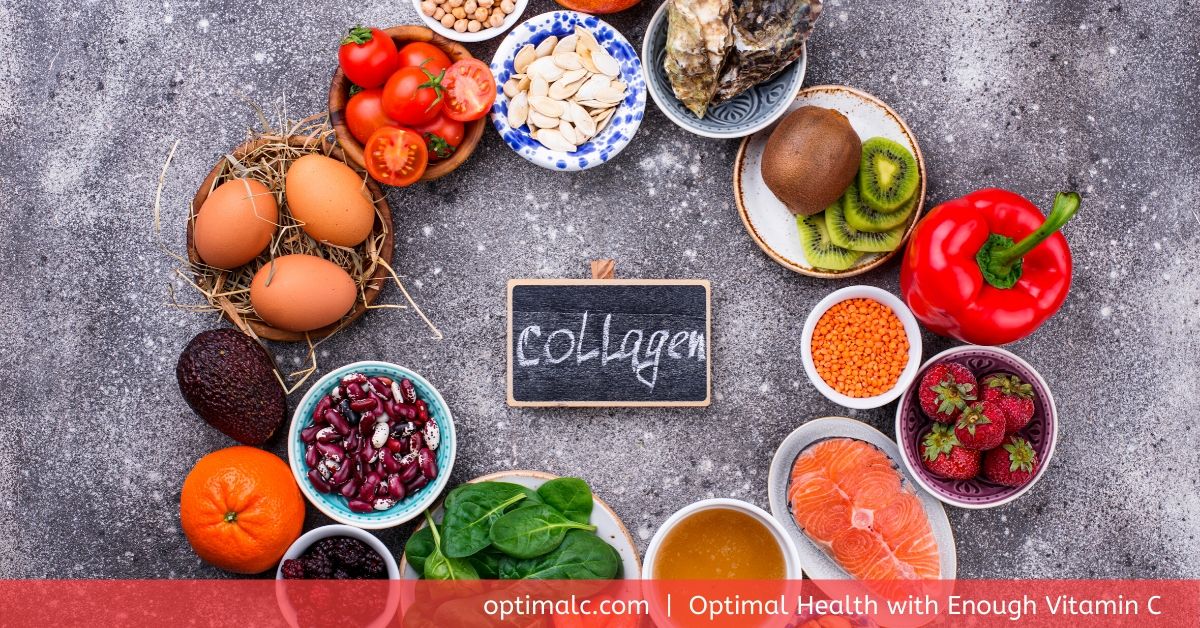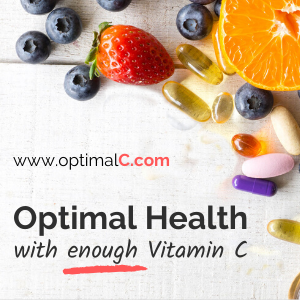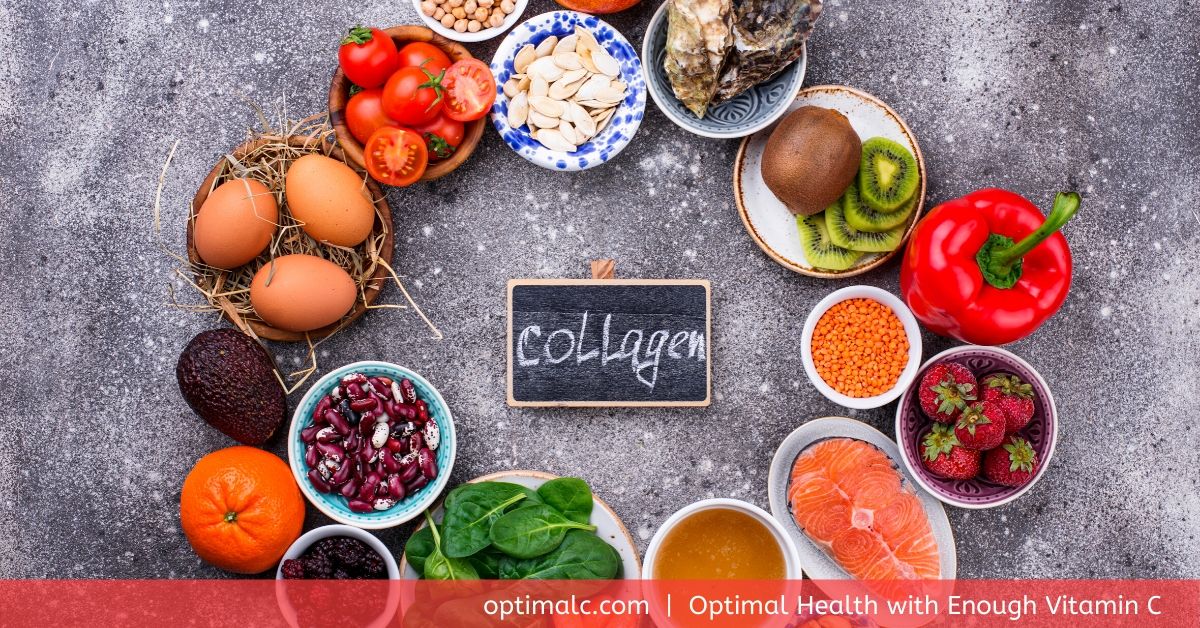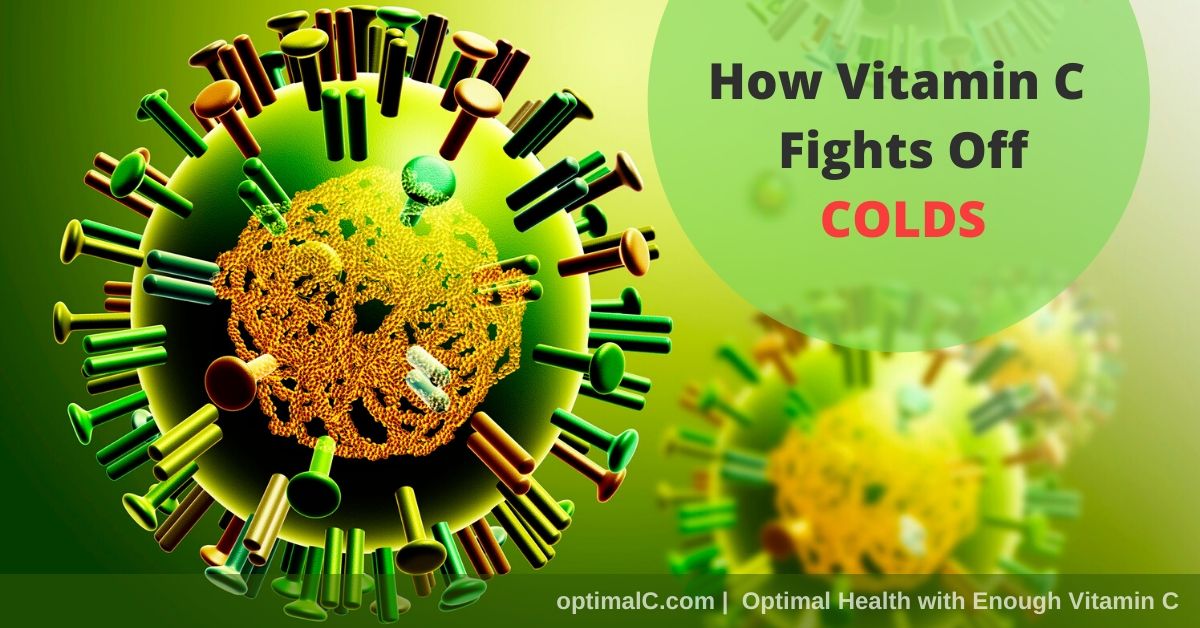Page Contents
Vitamin C and Collagen to Keep You Strong and Healthy
By Arturo Galindo, Cert. Nutritional Therapist
Vitamin C and collagen are key to your health. Collagen is the most important structural substance in the body.
It’s the “mortar” that binds your cells together. The same way mortar binds bricks together.
It’s the cement that “glues” the body to hold the tissues and organs.
And guess what?
Your body can't make collagen without ascorbic acid.
That’s right. One of the most important functions of ascorbic acid in the body is to create and maintain collagen.
 Vitamin C and Collagen production. More vitamin C means more and better collagen. Stronger bones, ligaments, and muscles. Stronger arteries. Faster wound healing. Youthful and soft skin.
Vitamin C and Collagen production. More vitamin C means more and better collagen. Stronger bones, ligaments, and muscles. Stronger arteries. Faster wound healing. Youthful and soft skin.We've prepared this short video for you. You'll learn what our site is about and how you can use this information to improve your health...
Subscribe and Get Our Free eBook!
 |
Important: Ascorbic acid or vitamin C is more than a vitamin. |
Lack of Vitamin C and Collagen
If you’re body lacks enough collagen, you're body will suffer. You’ll start to see symptoms which are very like to scurvy, or an extreme vitamin C deficiency:
- Brittle bones that easily fracture
- Weak arteries that rupture and cause hemorrhage
- Weak muscles and joints that cause pain
- Teeth that fall out
- Wounds and sores that never heal
Symptoms of extreme Vitamin C and collagen deficiencies are very similar.
Let’s say you take some vitamin C but not enough based on your body needs. Will your body have enough collagen of good quality?
Here's what the vitamin C experts think.
If there’s not enough ascorbic acid for a long period, your body will produce poor quality collagen. This may contribute to other conditions later in life.
- Arthritis and joint diseases
- Broken hips
- Heart and vascular diseases
- Strokes
You see, vitamin C and collagen are closely related to aging.
This is why is critical that you find how much vitamin C or ascorbic acid your body needs.
Enough Vitamin C and Collagen Production
One of the most important functions of ascorbic acid is to produce quality collagen.
Your body can't make collagen without ascorbic acid. And more ascorbic acid improves the production of collagen in your body.
It’s that simple.
This means that if you're body has enough vitamin C:
- Your bones and ligaments will be tougher and more flexible.
- Your arteries and veins will be stronger
- Your muscles will be stronger
- Your ligaments and bones
- Your wounds will heal faster
- Your skin will be more youthful, soft, firm, supple and wrinkle-free
Collagen is intimately connected with the entire aging process, and it cannot be formed without ascorbic acid - Stone, The Healing Factor
Here's an interesting study that found more ascorbic acid produced more collagen.
How to Increase Your Collagen Production
It seems logical that if you want your body to make more collagen, you must take enough vitamin C.
The question is how much ascorbic acid should you take?
Every person is different.
Dr. Linus Pauling, twice Nobel Prize, estimated that most people need between 4-12 grams per day. This is based on how much vitamin C other animals make in their bodies per kilogram of body weight.
Let me know your thoughts below.
Also, don't forget to subscribe to our blog and get a list of tips and FAQs. This includes helping you how to find how much vitamin C your body needs. Also, you'll get our family list of best vitamin C supplements!
Sources
- Stone, I. (1972) The Healing Factor, Vitamin C Against Disease
- Hickey S., Roberts H. (2004) Ascorbate, The Science of Vitamin C
- Pubmed - Regulation of procollagen synthesis and processing during ascorbate-induced extracellular matrix accumulation in vitro.
 |
By Arturo Galindo I have used vitamin C and nutrition for over 10 years to end my chronic diseases and help my family stay healthy. Learn about our story. |
Subscribe and Get Our Free eBook!
Follow us on Social Media!
How do you feel about what you just read?








Facebook Comments
Have your say about what you just read! Leave a comment in the box below.